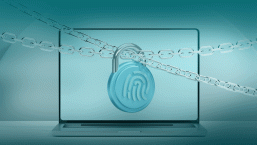Apps designed to ‘report’ on handset users’ communications while remaining undetected have increasingly become a factor in cases of domestic violence and even murder.
The apps, many on sale via app stores for smartphones such as iPhone, BlackBerry and Android, are marketed as a means for parents to monitor children’s use of smart devices, according to TechDirt.
But an Australian study has found that 97% of domestic violence cases involved the use of mobile technologies by the abusive partner.
CBS tested software on sale in America, and found that such software was often legal due to loopholes - for instance, it was marketed as a tool to track rogue employees or children.
One such package boasted, "All phone calls are recorded. Once you log into your account, you can see when the call was made, the number associated with the person on the other side and even listen in.The same goes for text messages. Even more shocking, if a phone call wasn't taking place but the phone was on, it could be used to bug a room and even record video. The GPS also allows someone to track where you are at any given moment of the day."
One such app, Mobistealth was used in a murder case in Australia by killer Simon Gittany to read his girlfriend’s Lisa Harnum’s SMS messages. In one message, she revealed plans to escape the abusive relationship, and he threw her off the balcony of a 15th floor apartment.
Mobistealth, along with other products such as Flexispy, are available online in free and premium versions. Mobistealth describes itself as, “a full-featured powerful cell phone tracking software package that enables you to get all the answers to your questions. What questions you say? They are questions about where the phone has been and what its user has been doing with it. With Mobistealth Android Spy Software, you can find out where the phone has been and where it is now. On the control panel, you get a line-by-line history with a date/time stamp linked to a map showing where the target phone has been. You can adjust the polling interval to get near real time logging of the target phone’s GPS location.”
“The Basic version of Mobistealth allows you to view the target phone’s contact file. This is useful because it answers the question as to whom your child or employee is communicating with.
With Mobistealth, you get to see the incoming and outgoing history of whom the target phone user was chatting with, conversing with, and planning with. Every SMS message on the phone gets sent to the Mobistealth server so that you can read what your child or employee is discussing. Even if they delete the message thread, you still retain it for viewing from your control panel.”
In the Victorian study, nearly two thirds of the victims said they felt as if they were being ‘watched’, but less than half of those had told anyone of this.
In the UK, a team at Newcastle University has developed counter-spyware to protect victims.
Following the initial pilot studies, trials of the new technologies will begin next month. Victims can simply point a phone’s camera at a QR code on a poster, to ‘clean’ evidence that may enrage a spouse.
"Any online access leaves behind an electronic trail which can easily be followed to see what we've been up to," explains Dr Budi Arief, from the Centre for Cybercrime and Computer Security (CCCS) at Newcastle University.
"For most of us this is a useful record but for someone living in fear of abuse the very systems set up to help them can actually be used against them. "What our technology does is erase these electronic footprints, allowing people to seek help in safety without fear of reprisal."
For domestic abuse victims, even seeking help can be risky.
"Another important consideration in the case of domestic violence is that in many cases, victims do not know where to get help from," adds Mr Martin Emms, a PhD student at the School of Computing Science. As a solution, the Newcastle University team has developed single use URL codes that can be distributed to victims.
These codes – represented as QR codes – are embedded into innocent-looking postcards and flyers and take the user directly to a support site. As the name suggests, the link will only direct its user to a support site once; subsequent attempts to use it will be directed to a 'safe page' – an innocuous one such as BBC News or Google home page.
This will be used in combination with the cleaner app. Once accessed, the app selectively wipes clean the user's digital footprints, removing any trace of their search for support – including temporary internet files, browser history entries and cookies - while leaving other electronic trails intact.
"This is very important as a completely clean browsing history raises suspicions," explains Mr Emms.
Instead of a postcard, the information is embedded in a poster advertising the domestic violence support service. Positioned in public places, the feature is only available while the user is standing close to the poster. Once they leave the area, the information cannot be accessed using either the history or the back button.
"We talk a lot about digital inclusion and the work being done to make it accessible to all," says Dr Arief.
"Our work has highlighted a vulnerable group whose need for online access is greater than most. These people are prevented from getting help, not through a lack of access or digital knowledge but through fear.
"Our hope is these technologies can be used to overcome this particular barrier and give more victims of domestic violence the confidence to seek help."




